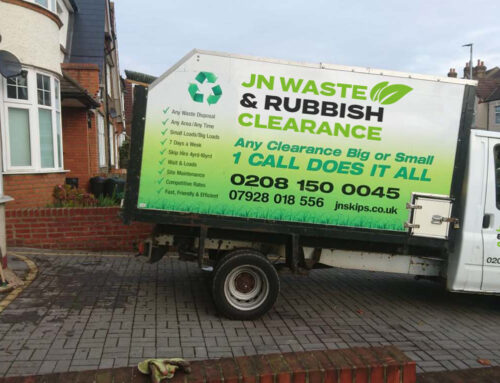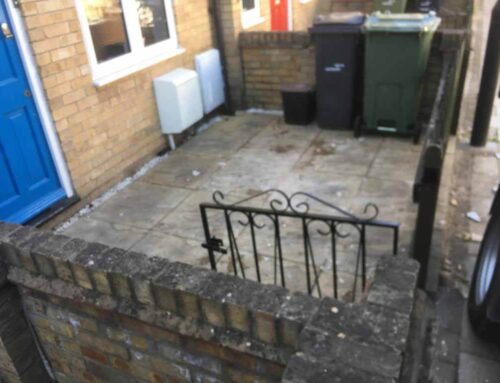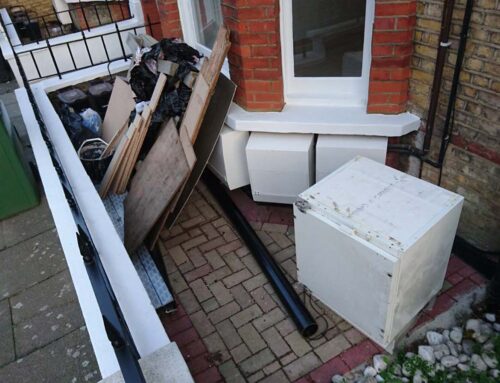Garden waste, an inevitable byproduct of our green spaces, plays a significant role in the overall health of our environment. Proper management of this waste type is crucial, not just for maintaining the aesthetics of our gardens but also for the broader ecological balance. Improper disposal of garden waste can lead to environmental concerns, including increased landfill use and the disruption of natural habitats.
What It Is and Why It’s Important to Manage It Properly
Garden waste encompasses organic matter such as grass clippings, leaves, branches, and weeds. When not managed properly, this green waste can contribute to landfill overflow, releasing methane, a potent greenhouse gas. Handling this Rubbish Removal in Croydon is essential to mitigate its environmental impact and sustain the health of our gardens and broader ecosystems.
Environmental Impacts of Improper Garden Waste Disposal
Improper disposal, such as burning or dumping garden waste, can lead to air and soil pollution. It affects local biodiversity and can introduce invasive species to new areas. Moreover, the mismanagement of garden waste Collection in Croydon undermines efforts to maintain sustainable urban environments.
The Benefits of Proper Garden Waste Management
-
Environmental Benefits:
Reducing Landfill Use, Improving Soil Health
Properly managing garden waste significantly reduces the strain on landfills. Composting, for instance, returns valuable nutrients to the soil, enhancing its health and fertility and reducing the need for chemical fertilisers.
-
Personal Benefits: Cleaner Gardens, Reduced Pest Problems
Well-managed garden waste leads to tidier, healthier gardens. Composting reduces the presence of pests and diseases, promoting a more vibrant garden ecosystem.
-
Community and Societal Advantages
Community-wide benefits include reduced waste management costs and decreased greenhouse gas emissions. Effective garden waste management contributes to neighbourhoods’ overall cleanliness and aesthetic appeal.
Setting Up a Home Composting System
-
Step-by-Step Guide to Starting a Compost Heap or Bin
Starting a compost heap is straightforward. Choose a suitable location, start with a layer of coarse material for drainage, and add layers of green (nitrogen-rich) and brown (carbon-rich) materials.
-
Tips for Balancing Greens and Browns
A balanced compost requires a mix of greens, like vegetable scraps and grass clippings, and browns, like dried leaves and branches. This balance ensures efficient decomposition.
-
How to Maintain Your Compost Pile
Regularly turn your compost to aerate it, and keep it moist but not wet. This will encourage the breakdown of materials and prevent odour issues.
Alternative Garden Waste Disposal Methods
-
Local Council Garden Waste Collection Services
Many councils offer garden waste collection, a convenient option for those unable to compost at home.
-
Hiring a Professional Garden Waste Removal Service
Companies like JN Waste provide specialised services for garden waste clearance, ensuring that your waste is disposed of responsibly and efficiently.
-
Community Composting Programs
Participating in community composting can be a great way to manage garden waste while engaging with your local community.
Troubleshooting Common Garden Waste Issues
-
Dealing with Excess Garden Waste
For large volumes of waste, consider hiring professional services like JN Waste, which can handle substantial amounts of garden waste.
-
Managing Diseased or Pest-Infested Garden Waste
Diseased or infested waste should not be composted. Instead, use council services or professional waste clearance to prevent the spreading of diseases and pests.
-
Overcoming Challenges in Composting
If composting is problematic, consider alternative methods like vermicomposting or bokashi, or seek advice from local gardening groups.
Conclusion
Responsibly managing garden waste is an integral part of environmental stewardship and contributes significantly to the health and aesthetics of our communities. Adopting practices like composting, utilising local waste collection services, or engaging with professional services such as JN Waste benefits our immediate surroundings and contributes to broader environmental sustainability efforts. As we embrace these sustainable practices, we play our part in creating a cleaner, greener world.







Leave A Comment